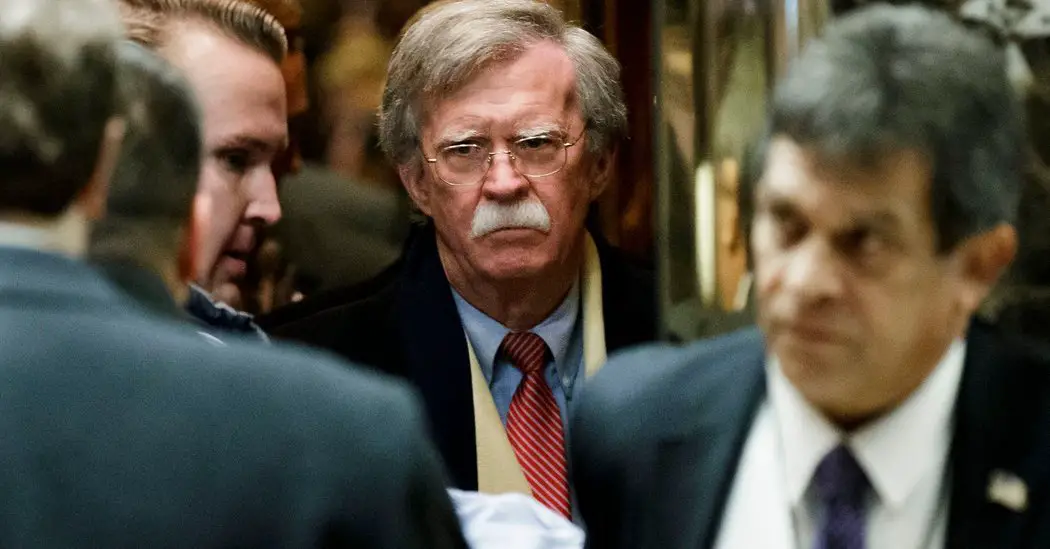Donald Trump spent lots of time on the campaign trail vowing to “tear up” the Iran deal made by President Obama to avert Iran’s nuclear capabilities. Up to this point, the deadline for revoking the deal has been pushed down the road, but it comes to a head again on May 12 when the next self-imposed deadline is up to either kill the deal, or extend it further. Given the state of relations with Russia, and the negotiations with China over North Korea, ending the Iran deal could have wide ramifications.
The Hill reports on the current state of the President’s mindset which seems to be around a 50/50 chance of either renewing or revoking, as of now:
When Trump extended Iran’s sanctions relief in January, he pledged it would be the last time unless European allies agree to a supplemental deal to fix what the president sees as the fundamental problems with the nuclear pact negotiated by the Obama administration.
And while negotiations with the Europeans are ongoing, hopes for a solution are increasingly fading.
“Every single day I have a new percentage about whether we’re going to get a new deal. Today is 51/49 no deal,” said Behnam Ben Taleblu, a research fellow at the Foundation for Defense of Democracies who favors fixing the deal instead of scrapping it.
Trump came into office vowing to tear up the “worst deal ever negotiated.”
The pact signed by the United States, Iran, China, France, Russia, the United Kingdom and Germany provided Tehran with billions in sanctions relief in exchange for curbing its nuclear program.
Trump sees three main issues: several provisions sunset, inspectors can’t demand to see some military sites, and it does not address Iran’s ballistic missile program and support for terrorists.
During Trump’s first year in office, his national security team argued it was in the U.S. interest to remain in the deal — a stance that influenced Trump’s decision to decertify the deal but not to re-impose sanctions. Decertification had little bearing on the deal’s fundamentals, but re-imposing sanctions could doom it.
Now, two of the administration officials who supported staying in the deal have been ousted and are being replaced with staunch Iran hawks.
With the turnover of security and defense personnel within the administration, hawks like the newly appointed National Security Advisor, John Bolton, will be taking a different line on Iran. If there is one group of people who seem to have some sway over Donald Trump, it appears to be the military commanders within the Pentagon. It’s amazing the Iran deal lasted this long considering how often Trump bashed it on the campaign trail. Clearly, however, he was following advice of those around him to leave it in place and see how it progressed. If Bolton gains stronger sway in the administration, Trump may be inclined to ignore the Pentagon and instead take a strong tact against Iran.
As Bloomberg notes, this may be Bolton’s chance to “kill the Iran deal”:
If you want to get a sense of just how the next national security adviser, John Bolton, fits into Washington’s foreign policy ecosystem, consider his lobbying last year against the Iran nuclear deal. The details here tell us a lot about how President Donald Trump’s next national security adviser understands America’s place in the world.
…
So eventually Trump settled on the current U.S. strategy: threaten to walk away unless America’s European allies agree to address its weaknesses, namely its sunsets, Iran’s missile programs and the weak inspection regime.
…
Not everyone agreed. Bolton wanted to rock the boat.
With the help of his longtime collaborator, Fred Fleitz, Bolton crafted a policy paper on how to exit the Joint Comprehensive Plan of Action, the formal title of the agreement intended to secure international monitoring of Iran’s nuclear development in exchange for lifting certain sanctions against the regime. An exit would be more involved than just announcing America’s withdrawal.
Bolton urged the Trump administration to pursue a diplomatic and political strategy that presented a paper on findings on how Iran was in breach of the agreement. He called for coordinating the decision with allies, but leaving Russia and China (two countries that negotiated and agreed to the deal in 2015) out of these consultations until the last minute.
…
White House officials at the time told me that Bolton briefed Trump on the plan (he has had access to Trump since his campaign in 2016). But eventually the president went with the strategy to try to fix the Iran deal instead of killing it altogether. Next month, when Bolton comes into his new job, he will have a chance to make his case again to the president — this time as national security adviser.
The winds are changing, and the next few months may prove pivotal when it comes to laying foreign policy groundwork for the next several years. A new lineup within the administration may be charting a new path which will further depart from the course set by President Obama. We could be entering a more hawkish time in negotiations, perhaps a time that will resemble the “cowboy diplomacy” of President Bush rather than the quieter, conflict-avoidance foreign policy of President Obama.
Donate Now to Support Election Central
- Help defend independent journalism
- Directly support this website and our efforts
